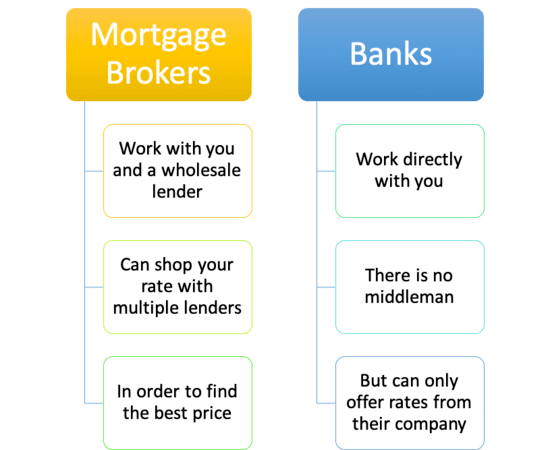Comprehending What a Jumbo Funding Entails and Exactly How It Varies From Traditional Fundings
Navigating the intricacies of jumbo lendings reveals a funding alternative tailored for those venturing into high-value real estate, normally going beyond the limitations set by the Federal Housing Money Firm. On the other hand, traditional car loans are frequently a lot more easily accessible, gaining from backing by entities such as Fannie Mae and Freddie Mac. The significant threat related to jumbo loans demands much more stringent credentials demands, including greater credit history and considerable down repayments. As these two funding kinds accommodate differing monetary landscapes, comprehending their subtleties is vital for making notified decisions in the complex globe of real estate funding. But just how do you identify which course finest fits your monetary approach?
Interpretation of Jumbo Car Loans
Jumbo financings are a sort of mortgage that surpass the adjusting lending limitations established by the Federal Housing Financing Firm (FHFA) These lendings deal with debtors that require to fund homes that are extra expensive than what conventional funding restrictions enable. The FHFA establishes annual conforming funding restrictions, and any type of loan surpassing these thresholds is classified as a jumbo lending.
Normally, big lendings are utilized in high-cost realty markets where home rates substantially surpass national standards, such as in municipal locations or deluxe housing markets. As these finances are not qualified for purchase by Fannie Mae or Freddie Mac, they carry integral dangers for lenders because of their larger size and non-conformity (jumbo loan). Subsequently, loan providers frequently enforce a lot more stringent credentials requirements for big loans than typical adapting lendings.
Debtors seeking jumbo loans need to generally demonstrate a solid financial account, including a higher credit report, durable income confirmation, and significant down payment, usually 20% or more. Additionally, lending institutions might require a lot more extensive paperwork to examine the customer's capacity to take care of larger regular monthly repayments. Recognizing the specific characteristics of big financings is essential for prospective consumers browsing this segment of the mortgage market.
Traditional Finances Review
While big lendings cater to high-value building funding, standard lendings represent the more common mortgage option in the real estate market. These loans are not guaranteed or guaranteed by any federal government entity, such as the Federal Real Estate Management (FHA) or the Division of Veterans Affairs (VA) Instead, they are backed by private lenders and comply with guidelines set by government-sponsored enterprises (GSEs) like Fannie Mae and Freddie Mac.
Conventional lendings are usually provided with repaired or flexible rate of interest and vary in terms of duration, generally extending 15 to thirty years. Customers frequently prefer standard financings for their foreseeable regular monthly payments, which can facilitate lasting monetary planning. In addition, they are offered for primary houses, second homes, and financial investment properties, using adaptability to satisfy diverse consumer requirements.

Key Differences In Between Financings
At the leading edge of this decision-making process are standard financings and big fundings, each possessing distinctive features and offering different borrower demands. Jumbo car loans exceed the adjusting finance limitations set by the Federal Real Estate Financing Agency (FHFA), which differ by region.

Furthermore, the down settlement needs can vary substantially. Jumbo car loans normally call for larger down settlements, sometimes exceeding 20%, to mitigate risk. Conventional car loans, on the other you can try these out hand, might enable lower deposits, with some programs approving as low as 3% for professional purchasers.
Qualification Requirements
Securing a big car loan includes fulfilling more strict certification demands compared to standard financings, mirroring the raised threat to lending institutions. These financings, which go beyond the adapting funding limitations set by the Federal Real Estate Financing Agency (FHFA), are not qualified for acquisition by Freddie Mac or Fannie Mae, thus exposing lending institutions to higher financial threat - jumbo loan. Therefore, customers have to show a high creditworthiness and economic security
A robust credit rating rating, normally 700 or higher, is critical for approval. Lenders also anticipate a lower debt-to-income (DTI) proportion, frequently not going beyond 43%, making sure that borrowers can take care of substantial month-to-month payments along with other economic responsibilities. A substantial cash book is usually required, frequently amounting to 6 months of mortgage repayments, to comfort lenders of the customer's economic strength.
Deposit assumptions are additionally elevated, frequently starting at 20% or even more of the property's value. While this is a secure for lending institutions, it necessitates significant in advance resources from consumers. Additionally, proof of constant, adequate earnings is crucial, generally verified through income tax return, W-2s, and recent pay stubs. Freelance individuals may need to offer additional paperwork, such as revenue and loss declarations, to corroborate their earnings security.
Picking the Right Loan
When selecting the most ideal financing alternative,Browsing the complexity of big financings needs cautious consideration. With the click for source more comprehensive variety of choices available to those looking for big fundings, the decision-making process should entail an extensive analysis of one's economic profile and lasting goals. Unlike conventional financings, jumbo lendings often feature stricter requirements and differed rate of interest, which require thorough research study and a clear understanding of one's financial standing.
When selecting between various big finance offerings, it is crucial to evaluate the financing terms, including rate of interest, settlement schedules, and associated costs. Borrowers need to compare the rates supplied by various loan providers to ensure they protect one of the most favorable terms. Additionally, recognizing the ramifications of repaired versus adjustable-rate mortgages (ARMs) is essential, as each alternative presents distinct advantages and threats depending on market conditions and individual economic techniques.
Engaging with an economic expert or mortgage broker can offer useful understandings customized to individual situations. These specialists can aid in navigating the nuances of jumbo fundings, making certain that borrowers are well-informed and geared up to choose a financing that aligns with their financial objectives, ultimately helping with a smoother home-buying process.
Final Thought
In recap, big finances function as an economic tool for getting high-value residential or commercial properties, requiring strict eligibility requirements and higher interest rates due to the raised threat for lending check out here institutions. Unlike standard loans, which satisfy FHFA restrictions and might obtain support from Fannie Mae or Freddie Mac, jumbo car loans require a minimum credit report of 700 and significant down payments. Recognizing these differences is important for customers in high-cost real estate markets to determine one of the most appropriate funding choice for their needs.
The FHFA develops annual conforming loan restrictions, and any type of car loan surpassing these limits is categorized as a big finance.
At the leading edge of this decision-making procedure are big lendings and standard finances, each having unique features and offering different debtor needs.Safeguarding a jumbo financing includes fulfilling much more rigorous certification needs compared to traditional lendings, mirroring the increased danger to lending institutions. Unlike traditional financings, jumbo finances frequently come with more stringent needs and varied rate of interest prices, which necessitate extensive study and a clear understanding of one's financial standing.
Unlike traditional financings, which conform to FHFA limitations and might obtain backing from Fannie Mae or Freddie Mac, big loans require a minimum debt score of 700 and considerable down repayments.